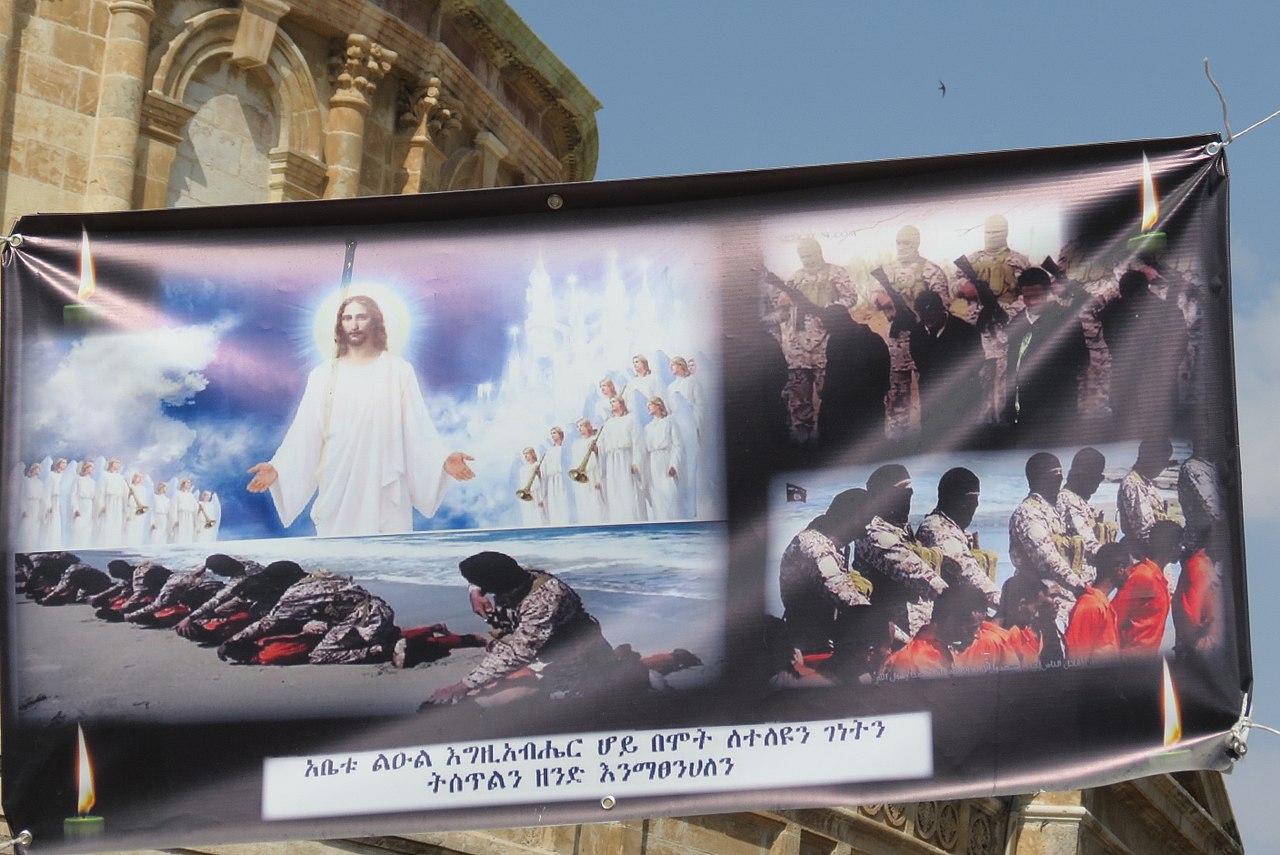In the latest wave of violence targeting Christians, ISIS-linked terrorists massacred 76 Christians in the eastern Democratic Republic of the Congo (DRC), 14 of those by beheading.
The Middle East Media Research Institute (MEMRI) reported that on August 13, the Islamic State Central Africa Province (ISCAP) claimed that on August 11, its operatives captured and subsequently beheaded three Christian locals near Maipi, in the Lubero territory of the DRC’s North-Kivu province.
The group claimed on August 14 that a day earlier, its operatives assaulted Christian villagers in Mayi-Moya, in the Beni territory of North-Kivu, using machine guns. They reportedly killed three and burned two houses.
An August 15 statement claimed that on August 13, ISCAP operatives captured and beheaded eight Christian residents near Ombole, Lubero, before leaving the area unharmed.
The following day, ISCAP claimed responsibility for an August 15 machine gun attack on “unbeliever” Christians near Tshabi, in the DRC’s Ituri province. The attackers reportedly killed ten and set fire to five houses and a motorcycle.
In an August 17 statement, the group claimed that in a previous-day attack, its operatives machine-gunned Christian civilians in Oicha, North-Kivu province. They killed ten, including a policeman, burned 20 houses and seven motorcycles, and seized a rifle, before leaving the area. ISCAP posted a graphic image of the body of the slain policeman whose rifle was seized.
On August 15, ISCAP claimed responsibility for a large-scale attack in Bandulu, which involved killing 39 Christian civilians and burning 50 houses.
Earlier this month, the group claimed killing 11 Christians, including one by beheading, in a series of attacks in Ituri and North-Kivu. Issue 508 of Islamic State (ISIS) weekly Al-Naba’, released on August 14, included photos from these attacks.
This is all part of an ongoing genocide. The blood-soaked pews of Saint Anuarite Catholic Church in Komanda tell the story of another atrocity. In the early hours of July 27, worshippers gathered for a midnight vigil were ambushed by fighters from ISCAP, leaving at least 43 dead, including nine children. Survivors described scenes of horror as militants armed with guns and machetes bound victims before executing them, then set nearby homes ablaze. Local authorities admitted they had received warnings of an impending attack but failed to respond, sparking outrage among residents who feel abandoned by both national forces and the international community.
The ADF’s transformation into ISCAP in 2019 has intensified its brutality and reach. Once a Ugandan insurgency, the group now operates as ISIS’s spearhead in Central Africa, targeting churches, villages, and clergy with calculated ferocity. Beheadings, mass shootings, and arson are common tactics, aimed not only at eliminating Christians but also at terrorizing entire regions into submission.
In Komanda, where the July 27 attack occurred, survivors recounted how militants stormed in during prayers, cutting electricity before opening fire and slashing worshippers in the dark. “They killed my wife and two children in front of me,” one survivor told local media. “I have nothing left.”
These killings add to a grim toll. In Beni, North Kivu, ISCAP attacks earlier this summer left at least 30 dead and over 100 abducted. In February, the Kasanga massacre saw 70 Christians beheaded and their bodies dumped outside a Protestant church. Human rights organizations estimate over 5,000 Christians have been killed by the group since it pledged allegiance to ISIS, with 237 deaths recorded between Christmas 2024 and mid-2025 alone.
Despite a United Nations peacekeeping presence (MONUSCO) and joint operations with Ugandan forces, civilians in Ituri and North Kivu say little has changed. The Soufan Center’s July 30 briefing noted that overstretched security forces and ongoing conflict with the M23 rebellion have created a vacuum that ISCAP is exploiting to expand its control.
Christians “are deliberately targeted”, as well as “Christian communities, their livelihood(s), faith leaders and places of worship”, according to the report by Open Doors International, a faith-based non-profit working to raise awareness of global persecution, aiming to mobilize prayer, support and action among Christians.In some cases, Christians are being forced to convert to Islam to get food or to preserve their livelihood. Open Doors reported that 95% of people living in the DRC are Christian. Analysts claim the Islamist ADF, are bent on turning this community in the North East of the country into an Islamic Caliphate, forcing this majority-Christian community to follow extreme Muslim practices. Christians are reportedly becoming “an endangered species” there, the report says.
The atrocities highlight a stark reality: for Christian communities in eastern DRC, survival now hinges on evading a shadowy force intent on exterminating them. “We are being slaughtered because of our faith,” said a local pastor who lost members of his congregation in the Komanda attack. “If the world doesn’t act, there will be no Christians left here.”
Worldwide, and particularly in Africa, Christians face increasing persecution. In a January 2025 report, Open Doors US stated that “over 380 million Christians worldwide experienced at least a “high level” of persecution and discrimination because of their faith.”




